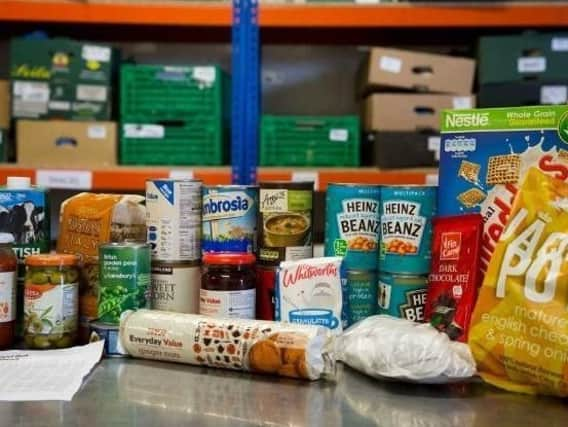This is why the number of emergency food parcels handed out in Yorkshire has risen by 17 per cent


Analysis by the Trussell Trust, a charity working on hunger and poverty, showed 47,722 emergency three-day food parcels were provided to people in crisis in the region by food banks from its network. Thirty-six per cent of these went to children.
The trust says more people than ever are being forced to use food banks with over 820,000 emergency food parcels being handed out across the UK in the past six months.
Advertisement
Hide AdAdvertisement
Hide AdThe Trussell Trust, which runs two-thirds of the UK’s food banks, says the 23 per cent increase on the same period last year makes it the busiest six-month period for their network’s food bank history since it was established.
West Yorkshire used the highest amount of emergency food parcels, representing 45 per cent of all those in the region, while North Lincolnshire used the least.
The main reasons highlighted for needing emergency food was low benefit income not covering living costs, as well as delays or changes to benefits being paid, according to the charity.
The Trussell Trust, has now called on all political parties to pledge to protect people from hunger and urged the next government to end the five-week wait for benefits received under Universal Credit.
Advertisement
Hide AdAdvertisement
Hide AdIt has also called for Ministers to ensure benefit payments cover cost of living and commit to investing in local emergency support for people in crisis.
Emma Revie, The Trussell Trust’s chief executive, said “More people than ever before are being forced to food banks’ doors. Our benefits system is supposed to protect us all from
being swept into poverty, but currently thousands of women, men and children are not receiving sufficient protection from destitution.”
But she added that the issue can be fixed if during the General Election political parties focus on using the benefits system to tackle poverty and bring an end to the need for food banks.
Advertisement
Hide AdAdvertisement
Hide AdDave Paterson, chair of West Yorkshire’s food poverty network, said that the 17 per cen increase was down to a number of factors that had left people with little to live on, often just £50 a week, a figure which The Trussell Trust highlighted themselves as an issue.
However, Mr Paterson said “The biggest impact we have seen to food bank usage is Universal Credit.”
Highlighting two issues with the Government's flagship benefit reform - the five-week wait period until the first Universal Credit payment and the requirement to pay back an advanced payment within 12 months - as a major challenge to people’s lives, Mr Paterson said “It is really concerning”.
Data from the Leeds South and East foodbank showed that 41 per cent of those who were on Universal Credit and attended the site had not yet received any Universal Credit payment and that 20 per cent said they had to wait over the five-week period to get their first payment.
Advertisement
Hide AdAdvertisement
Hide AdLabour’s Shadow Work and Pensions Secretary, Margaret Greenwood, said “It should be a source of shame for this government that food bank use has risen so sharply yet again.
“These figures show clearly how harsh, punitive Conservative policies like the five week wait in Universal Credit are pushing people to the point of destitution.”
Labour’s current pledge if they enter government is to halve food bank usage within their first year in office and to end foodbank use within three years which they say can be done by scrapping Universal Credit.
Ms Greenwood added that “Nobody should ever be forced to turn to food banks to survive.”
Advertisement
Hide AdAdvertisement
Hide AdThe Conservative Minister for Welfare Delivery, Will Quince, said “This Conservative Government has provided a safety net for vulnerable people, while also making work pay and ensuring
fairness for the taxpayer.
“Unemployment is at the lowest rate since 1974. The number of people in poverty has fallen by 400,000 since 2010. The Government also provides free school meals for 1.3m
disadvantaged children.
“Labour would wreck this support through increasing taxes by £2,400, bankrupting public services and running two chaotic referendums next year”, Mr Quince added.
